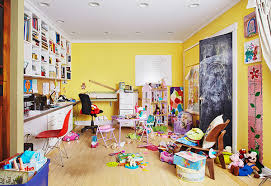Children need organization and routines to feel safe. Children have little internal sense of order when they start out. So the child’s environment and schedule must provide the needed external structure. This isn’t to say that everything they do is controlled. I subbed at a school where they did that to control behavior and it backfired. Allow freedom within limits. For example, at school, they take out their toys, and clean up and put away afterwards. But within that routine, they can choose from a number of things to play with and then play with those things for as long as they want to.
So many things are so new and unpredictable for children. If they have a few things they can count on, they will feel more secure. If they are not always trying to cope with a changing schedule or landscape, they can spend more of their energy learning small things without just managing to survive in what feels like chaos to them. Eventually, they will absorb the external structure.
Suggestions for Home
Schedule
Think what it would be like if you could never predict when you are going to be told to take a shower or when you are going to bed, etc. What if you were to go to a foreign country where you couldn’t really understand the language or culture, and someone was unpredictably dictating how your day would go.
Have your child on a predictable schedule. The child can relax into that.
Some kids do well with a basic schedule posted in their rooms with a picture/word for each part of the day.
Also, have a bed time routine: sing songs, cuddle, whatever, but make it the same every night. This will signal to your child’s body that it is time to shift into sleep.
Having predictable patterns helps a child feel safe. If they have routines, they are more likely to explore new toys and different experiences in their environment because they know they can retreat to safety when they need to.
If the Schedule or Circumstances are Going to be Different
If the schedule is going to change, be sure and tell your child beforehand. For example, “normally we go home when I pick you up from school but today we are going to a doctor’s appointment”.Then describe what will happen at the doctor’s appointment.
If you all are going into a new situation, let your child know about it beforehand. If you always go to a fast food restaurant, but are planning to go to a sit down restaurant instead, let your child know what the differences will be. “Normally, we stand in line to ask for food, but this time we will sit down, look at a menu and someone will ask us what we want.”
If you have a schedule in place, and let your child know of changes as they occur, your child will feel safer and will behave better.



